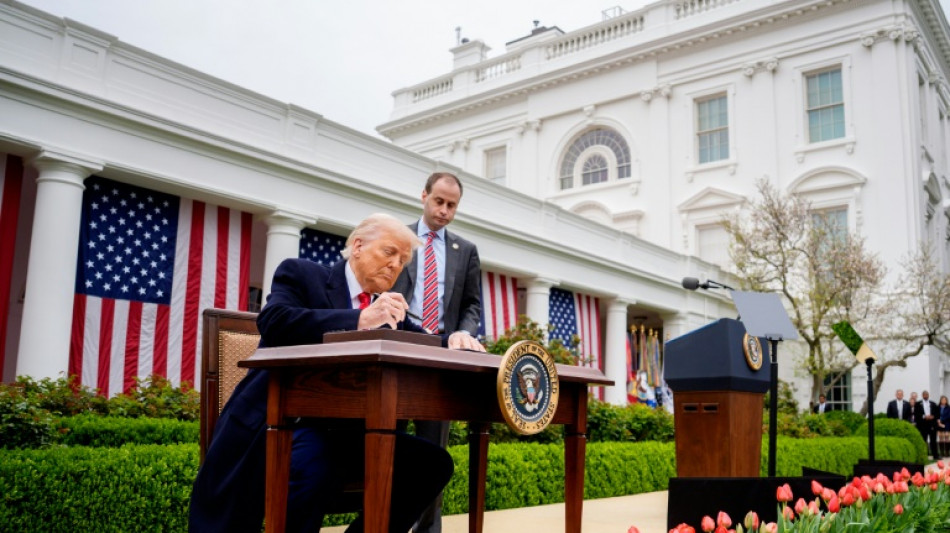
-
 Cash-strapped Nigerians turn to YouTube for entertainment
Cash-strapped Nigerians turn to YouTube for entertainment
-
Two dead as fans, police clash before Copa Libertadores game in Chile

-
 Flowers in their hair: Shan boys ordained into Buddhist monkhood
Flowers in their hair: Shan boys ordained into Buddhist monkhood
-
Edwards leads Wolves past Grizzlies as playoff race heats up

-
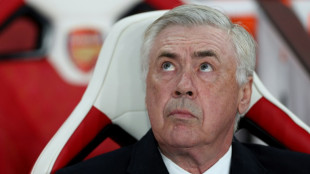 Ancelotti questioned as Real Madrid face Alaves
Ancelotti questioned as Real Madrid face Alaves
-
Old foes Bayern and Dortmund face off amid spectre of European exit

-
 Early holiday, more fans: Philippines schools adapt to climate change
Early holiday, more fans: Philippines schools adapt to climate change
-
In skies, as on land, European forces face gaps if US pulls back

-
 Digital divas: Can Japan's virtual YouTuber craze crack America?
Digital divas: Can Japan's virtual YouTuber craze crack America?
-
WHO pandemic agreement talks face deadline crunch

-
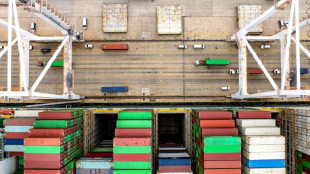 Stocks, dollar sink and gold hits record as Trump tariff panic returns
Stocks, dollar sink and gold hits record as Trump tariff panic returns
-
LeMond hails 'one in a million' Pogacar ahead of Paris-Roubaix debut

-
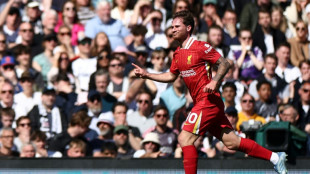 Liverpool can move closer to the title as top five tension mounts
Liverpool can move closer to the title as top five tension mounts
-
Trump admits trade war 'cost' as markets hit
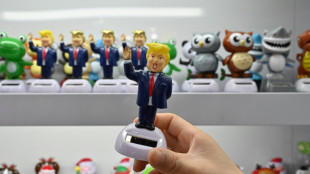
-
 AI only just beginning to revolutionize the NBA game
AI only just beginning to revolutionize the NBA game
-
Despite Trump pause, overall US tariff rate at highest in a century
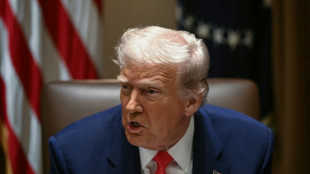
-
 'A pain that doesn't subside' at funerals for Dominican nightclub disaster victims
'A pain that doesn't subside' at funerals for Dominican nightclub disaster victims
-
Panama deal allows US to deploy troops to canal
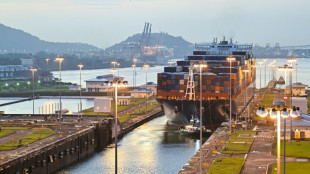
-
 US firm says it brought back extinct dire wolves
US firm says it brought back extinct dire wolves
-
Grieving Dominicans start burying 220 victims of nightclub disaster

-
 Aberg closes strong at 'sneaky hard' Augusta National
Aberg closes strong at 'sneaky hard' Augusta National
-
US auto union praises some Trump tariffs
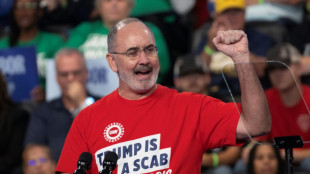
-
 Australian IVF clinic admits embryo mix-up
Australian IVF clinic admits embryo mix-up
-
Rose: I've played well enough to win Masters but lack the jacket

-
 Rose again enjoys 'luxury' of first-round Masters lead
Rose again enjoys 'luxury' of first-round Masters lead
-
Rose rockets to Masters lead, defending champ Scheffler in pursuit

-
 Tesla opens first showroom in oil-rich Saudi
Tesla opens first showroom in oil-rich Saudi
-
Oscars to add new award for stunts

-
 Hatton loves being at Masters but 'It's just so hard'
Hatton loves being at Masters but 'It's just so hard'
-
'Mistakes can happen': Amorim backs Onana after Lyon nightmare

-
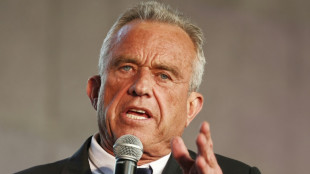 RFK Jr says study will reveal cause of autism 'epidemic'
RFK Jr says study will reveal cause of autism 'epidemic'
-
Tourist family, pilot killed in 'tragic' NY helicopter crash

-
 No.1 Scheffler makes strong Masters start to defend title
No.1 Scheffler makes strong Masters start to defend title
-
Man Utd and Spurs draw in Europa League, Rangers hold Athletic

-
 Rose rockets to Masters lead with Scheffler and McIlroy in pursuit
Rose rockets to Masters lead with Scheffler and McIlroy in pursuit
-
Man Utd held late in Lyon after Onana errors in Europa League
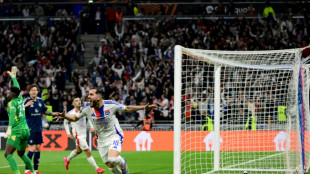
-
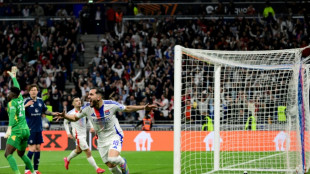 Man Utd held late in Lyon after Onana errors
Man Utd held late in Lyon after Onana errors
-
Wall Street rally fizzles as tariff fears resurface
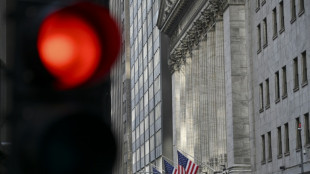
-
 MLS to open 'second phase' of major season overhaul study
MLS to open 'second phase' of major season overhaul study
-
Argentina braves 24-hour strike as it awaits word on IMF loan

-
 Spain's Ballester finds relief in Masters water hazard
Spain's Ballester finds relief in Masters water hazard
-
Porro rescues Postecoglou as Spurs held by Frankfurt

-
 Grieving Dominicans start burying 200+ victims of nightclub disaster
Grieving Dominicans start burying 200+ victims of nightclub disaster
-
CONMEBOL proposes one-off 64-team World Cup in 2030

-
 Rybakina on form for Kazakhstan in BJK Cup
Rybakina on form for Kazakhstan in BJK Cup
-
Former Real Madrid coach Leo Beenhakker dies aged 82

-
 Rose rockets to top of Masters leaderboard, Scheffler one back
Rose rockets to top of Masters leaderboard, Scheffler one back
-
Langer fades after fiery start in Masters farewell

-
 Iran, US raise stakes ahead of key talks in Oman
Iran, US raise stakes ahead of key talks in Oman
-
US-China confrontation overshadows Trump's 'beautiful' trade war
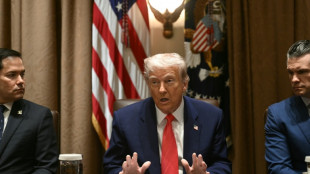

Trump tariffs to test resiliency of US consumers
In unveiling tariffs this week challenging the decades-old international trade order, President Donald Trump lambasted globalization as a raw deal for the United States that has devastated US manufacturing towns.
Trump left out the upside to the United States from the liberal flow of goods: a reliable supply of affordably priced appliances, clothing and electronics whose consumption has helped lift US economic growth above other developed economies in recent years.
"Obviously we've benefited significantly," said Paul Gruenwald, global chief economist at S&P Global Ratings. "We get to consume a lot of things that are produced more efficiently in other countries."
Trump's tariffs are almost certain to negatively impact this dynamic, say economists who see the levies lifting the price on everything from Gap t-shirts to the Apple iPhone to French wine.
"This is very clearly going to raise consumer prices," Michael Pearce, a US economist with Oxford Economics, said of the barrage of levies announced late Wednesday in an unveiling the White House billed as "liberation day."
Winners in Trump's policy include communities that benefit from reshored manufacturing, while losers include export-focused industries like plane manufacturing and pharmaceuticals if there are retaliatory tariffs, Pearce said.
But imports represent only about 14 percent of US gross domestic product, while exports account for 11 percent -- figures that are even lower if energy is taken out. Moreover, goods account for one-third of US consumption compared with services, which comprise the rest.
"The net impact on the US economy may be surprisingly small given the headlines we're seeing," said Pearce, who warned that Trump's levies could end up disproportionately hurting low-income consumers if the tariffs are paired with tax cuts that benefit the wealthy.
Gruenwald, who described US consumer resiliency as a core strength in recent times, said S&P will lower the US outlook somewhat amid a higher inflation outlook for 2025. But he said the trade war "wouldn't move the needle" in the short-term "for a big economy like the United States."
- More 'friction' ahead -
Trump's Wednesday White House event unveiled levies on dozens of countries including all major US trading partners. These included the imposition of 20 percent levies on the European Union, 24 percent on Japan and an additional 34 percent on goods from China -- bringing the new added tariff rate there to 54 percent.
Trump cast the event in historic terms, saying Wednesday "will forever be remembered as the day American industry was reborn" and the country turned the page on globalization.
"For decades, our country has been looted, pillaged, raped, and plundered by nations near and far, both friend and foe alike," he said.
A day after the announcement, commentators cautioned that the president's history of sometimes quickly shifting on tariffs meant that the proposed levies could be altered after bargaining with other governments, which could lean on big companies to lift investments in the United States.
In any case, economists predicted the shift would lessen trade between the United States and other countries, but not end it.
"There will be a lot more friction," said Joseph Brusuelas, chief economist at RSM US, a consultancy, who predicted the underlying structure around trade and capital flows will be maintained.
Brusuelas said the United States has been the "big winner" under globalization, but predicted growth "won't be as exceptional."
"Europe and Asia will narrow the gap," Brusuelas added, calling them "places where the state plays a more central role in constraining the movement of goods and capital."
Pearce said Trump's unpredictability on trade would lead to reduced capital spending by firms in the short run and that the broad tilt against trade will be "slightly negative" for the US economy in the long run.
Gruenwald pointed to the risk of reduced competition.
Globalization forced US companies "to deal with foreign competition," Gruenwald said. "If we kind of seal off that competition, there's a risk these nice productivity numbers could decline."
U.Maertens--VB
